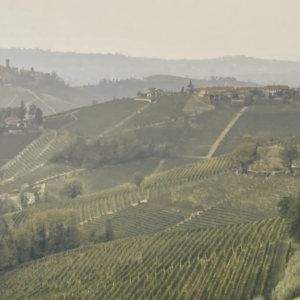
We Are All Just Living in Jenny Offill's World
Kristin Iversen Talks to the Author of Weather
The end of a year is already a microclimate of anxiety, unmet expectations, and misplaced nostalgia for all that hasn’t happened and probably never will, but when the end of a year is also the end of a disaster-filled decade, well, that microclimate grows even more acute. Anxiety takes on a humid quality, it settles onto your skin so that it’s hard to know whether it’s the atmosphere that’s generating all that static or if it’s just you.
The end of 2019 was defined by such a microclimate: Everyone asked for weighted blankets and sound-blocking sleep headphones as holiday presents. Half of Australia was burning, the president was mocking a teenager on Twitter because of her position on climate change, and it was officially revealed that we’d just endured the second hottest year on record, with the top five all having been in the 2010s. All to say, you don’t need Weather to know which way the wind blows.
And yet, Jenny Offill’s third novel and follow-up to 2014’s wildly successful Dept. of Speculation, is probably exactly the book you want—a cracked-mirror reflection of our collective fears about climate change, fascism, addiction, family, and safety. It serves as a literary weighted blanket of sorts; rather than being a panacea for modern anxiety, it’s an acknowledgment of its oppressive presence, a dark and beautiful reminder that panic can only be conquered when it’s confronted, and that, sometimes, being afraid just means you’re paying attention.
“I think fear is useful to a certain degree, in that it can be a spur,” Offill told me recently. “But then at a certain point, there’s too much fear and it’s paralyzing. I tried to turn the fear I was feeling into something that would prod my conscience… I started saying, Okay, well, what’s a concrete thing you could do? What’s something you could do?”
Offill and I spoke twice about Weather—once about a week before Christmas, at the wreath-festooned bar of New York City’s Jane Hotel, and once again, about a month later, over the phone—and each conversation was punctuated with her references to the many things she is actually, actively doing to prevent her fear about climate change from turning into despair. Offill, who lives in upstate New York with her husband and teenage daughter and teaches in the MFA program at Syracuse University, spoke to me about books she’d read on the subject, like Beautiful Trouble by Andrew Boyd, and about her involvement with the global environmental group Extinction Rebellion: “My natural inclination is very non-joiner… but, with climate change, I just feel like even if it all fails—which it very well might—I’ve taken the quite simple action of talking to people younger than I am, of talking to my daughter, and feeling like I didn’t just keep looking away from what I knew [to be true].”
It’s easy, when talking about climate change, to veer into the didactic, and Offill knows this, but says that the way she got over her unease at speaking so earnestly about anything was by realizing “I don’t want to say to my daughter, ‘I’m so sorry you’re living in this blazing inferno, but I was really embarrassed, and it felt super awkward, and there were some really bad songs.’” She laughed: “I just feel kind of like, fuck off to myself—get over it.”
“With activism, the fear doesn’t go away, but maybe the shame of not acting goes away.”
But while Offill herself might have resolved to ignore the voices in her head that tell her she’s not worthy to do certain things, one of the distinct pleasures in her work is that it is populated by characters who find it next to impossible to get over anything, the kind of people who are haunted by lives not lived, plagued by everything from pests (bedbugs! mice!) invading their homes to unwanted ephemera invading their heads and taking their thoughts to increasingly dire places.
In her second novel, Dept. of Speculation, the narrator is a wife, a mother, a writer—any one of which would probably denote a doubt-filled existence, but with all three in play, constant anxiety and a life lived mostly in the head are all but guaranteed. Offill wove together all the threads of her narrator’s many fears with the delicacy and tenacity of a spider; the book’s strength lies in its seeming structural fragility, in the way its many fragments spiral out from one another, paralleling the way our thoughts turn in on themselves, leading to feelings of shame, regret, and the constant question of: What if?
That novel is funny and strange and offers up no easy answers (one of its most popular quotes is related to the fact that nobody has ever said to the narrator, “you make it look so easy”), but the reason that it resonated so emphatically with so many readers—particularly women, particularly artists—is that it’s piercing in the way it addresses the shame that we—particularly women, particularly artists—assume when we feel that we’ve been complicit in thwarting our own ambition, when we feel that we’ve opened ourselves up to a certain kind of irrelevance by not behaving in a sufficiently proactive way. Perhaps most importantly, it confronted the flawed binaries so many of us have come to accept as our only choices, and showed how painfully funny it is to think that we can only be mothers or “art monsters,” contemplative or active: “She thinks before she acts. Or more properly, she thinks instead of acts.”
Reading Offill’s work feels like taking flight.
Dept. of Speculation came out in 2014—Offill’s debut, Last Things, came out in 1999, and is a more structurally formal novel, told from the perspective of an eight-year-old girl watching her family fall apart—but its impact is still strongly felt. Along with Rachel Cusk and, more recently, Sally Rooney, Offill’s name is one that is used frequently to generate a specific kind of buzz around new women writers; citing it has become a shorthand for poetically evocative and extremely precise paragraphs, stylized rather than plot-driven writing, the prioritization of the cerebral rather than visceral. It’s easy to understand the impulse to invoke a beloved and distinctive stylist like Offill when promoting as-yet-unknown authors, but Weather is a reminder that while there might be many novelists whose works have echoes of Offill’s voice, there’s nothing quite like the original.
Weather is structurally similar to Dept. of Speculation: It’s short and comprised of jewel-like paragraphs in which every sentence is a softly polished facet; the structure has an inherent urgency, so much so that reading Offill’s work feels like taking flight. (There are bound to be many reviewers saying that they finished the book in one sitting or over the course of a couple hours; that’s possible, of course, but not really the point.)
But while the narrator of Weather is also a wife and mother (although, she has a name: Lizzie), who could also fairly be described as a thinker instead of a doer and who is also grappling with ever-present anxieties, there is a significant difference between the two books, and the two narrators. Much of the beauty in Dept. of Speculation comes from its gentle, probing portrayal of a woman who is lost in her own thoughts, who takes her extensive knowledge of the world around her and uses it to better understand herself; it showcased a kind of intellectual selfishness women are not often afforded, and it felt liberating. Weather does the opposite, to great effect, offering a woman in crisis who uses the disasters of her daily life to better understand the state of emergency in the world around her—a different, though equally powerful type of liberation.
The problems facing Lizzie are both small and large: Her brother is battling opioid addiction, her local car service company is threatened by ride-sharing apps, she feels distant from her husband, she’s not allowed to walk her son into his school, mice have taken up residence in her apartment, her knee hurts, and a part-time job answering emails for her mentor’s climate change podcast has Lizzie newly obsessed with doomsday prepping. There is a lot to be afraid of, and she is afraid, but ultimately, if not easily, Lizzie confronts what it is that scares her, and resists collapsing in on herself. She supports her brother any way she can. She buys humane traps for the mice and cleans their prolific droppings from her kitchen shelves. She goes to the doctor. She works toward understanding the difference between a disaster and an emergency. She accepts that she’s not alone.
Not all of Lizzie’s attempts to work through her fear are as effective as she would want them to be, but, Offill said, by “telling the truth—as the character starts to do about what’s happening to her—you realize how many other people have been in the same situation… It goes back to maybe my favorite line that I heard when I was in college: Nothing human is alien to me.”
Perhaps the most insidious part of living with anxiety—or depression or chronic fear—is how isolating it is, how much it makes a person feel like they are separate from everyone close to them; it makes even the most routine of activities full of chaos, endless inner turbulence. The person with anxiety becomes an alien to herself, ashamed of who she has turned out to be, unsure of where to go for empathy.
In the last pages of Weather, Lizzie goes to a dermatologist for a skin cancer screening, and is told by the doctor, as he looks, “one by one,” at every spot on her body, that each mark is: “Exceedingly unlikely to be cancerous! Exceedingly unlikely to be cancerous!”
Lizzie thinks: “I wanted every day to be like this, to begin in shame and fear and end in glorious reassurance.”
Offill told me, “In my other books, there’s also the shame of when you’re going through any kind of extreme or difficult experience, there’s that shame that you’re falling apart.” But in Offill’s other books, that shame is attached to the anxiety attendant with characters’ personal experiences, because Weather addresses the fear surrounding climate change—a problem so big it’s hard to comprehend—it manages to do something close to impossible: take the alien and make it human. And it does so by serving as tacit encouragement to take action even when you feel most powerless.
Offill hadn’t intended to write an explicitly political book, and she joked with me about sounding like “a high school guidance counselor” when she recommended different ways to take action, and explained how important her work with Extinction Rebellion has been to her—not least in how it reminded her of our connection to one another, and thus our collective responsibility to make changes. “Very few of us aren’t complicit—especially in the West. And I think that sense of complicity [leads to a] sense of why even bother or it’s too late or what good can I do? That’s basically becoming another form of denial. It’s not denying that climate change is happening, but it’s denying that there’s a range of effects and everything we do helps mitigate it… with activism, the fear doesn’t go away, but maybe the shame of not acting goes away.”
In the same way that Dept. of Speculation opened up countless conversations about the limitations women face when they attempt to balance art and marriage and motherhood and desire, Weather is poised to do the same, only the conversations are about a different kind of responsibility: instead of interrogating what we owe to ourselves, it asks what it is we owe to each other.
This is a difficult question to ask in such fractured times, when empathy can be difficult to access for people whose views are diametrically opposed to your own. And Offill doesn’t think it’s so simple anyway: “I’m very cautious of saying empathy is the only way, because I feel when someone shows themselves as wishing to harm to people, the only appropriate response is to censure, or speak out. But, it’s about meeting each human and allowing them to show who they are.”
And, as Weather suggests, it’s about understanding that the most deeply personal things about ourselves—our insecurities, our shames, our fears. Because, those things that make us feel the most alone, the most alien, are actually the things that make us the most human. They also might not be so easy to just ignore.
“I don’t think we’re going to get out of this fear. I think we’re going to have to learn to live with it. What’s been broken isn’t going to be put back together easily. That said,” Offill added, “I think we can try not to let that fear be our only lens through which we view the world.”
Kristin Iversen
Kristin Iversen is a writer and editor living in New York.



















